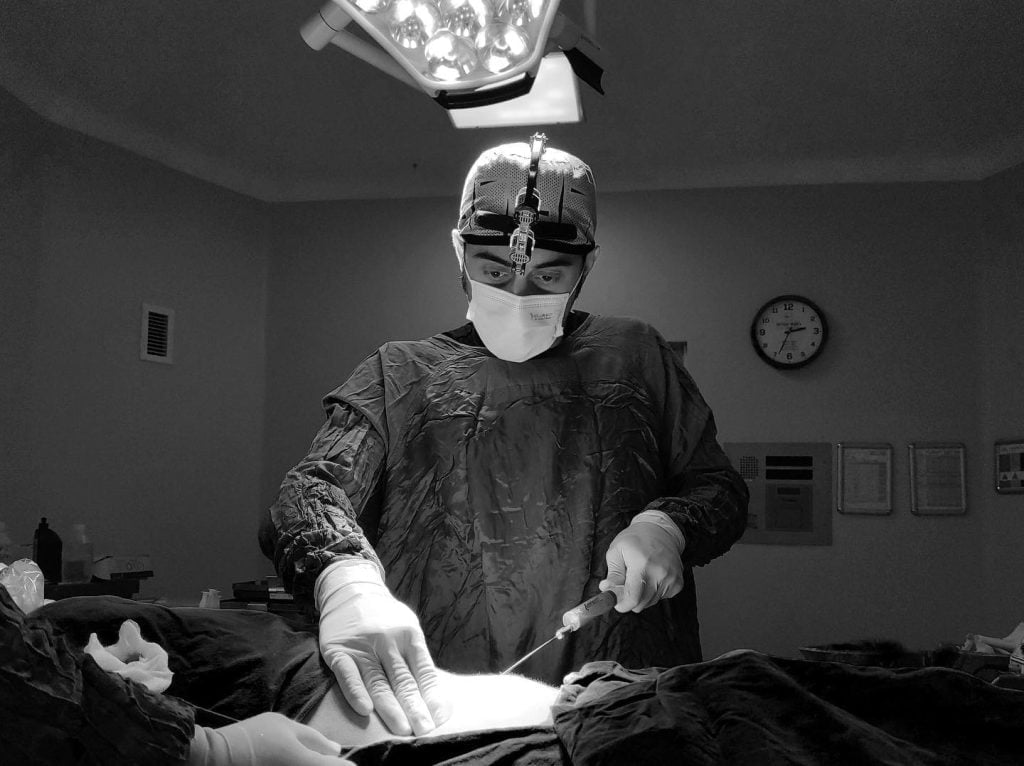Facial feminization surgery (FFS) is a set of surgical procedures that aim to modify the facial features of transgender women and make them more feminine. FFS can have a significant impact on the quality of life, self-esteem, and mental health of transgender women, as well as reduce their risk of discrimination and violence.
However, FFS is not a cheap procedure. According to a 2020 study, the average cost of FFS in the USA was $40,557, while the average cost of FFS in Turkey was $11,865. This means that FFS in the USA is more than three times as expensive as FFS in Turkey.
Why is there such a huge difference in the cost of FFS between these two countries?
We will divide the factors into four categories: surgeon, hospital, country, and patient. Each category will have sub-factors that are mutually exclusive (they do not overlap) and collectively exhaustive (they cover all possible aspects). We will also provide some examples of how these factors influence the cost of FFS in each country.

Table of Contents
Surgeon
The surgeon is one of the most important factors that determine the quality and cost of FFS. The surgeon’s experience, reputation, skill, technique, and specialization can affect the outcome and price of FFS.
Experience
The experience of the surgeon refers to how many years they have been performing FFS and how many cases they have done. Generally, more experienced surgeons charge higher fees than less experienced ones, because they have more knowledge, expertise, and confidence in their work. They also tend to have more satisfied patients and fewer complications.
In the USA, there are only a few surgeons who specialize in FFS and have extensive experience in this field. Some of them are Dr. Jeffrey Spiegel, Dr. Toby Mayer, Dr. Eric Bensimon, and Dr. Harrison Lee. These surgeons have been performing FFS for over 20 years and have done thousands of cases. They are considered among the best in the world and charge accordingly. For example, Dr. Spiegel’s fee for FFS ranges from $25,000 to $60,000.
What about the situation in Turkey, which is not a very well-known country for FFS?
In the realm of Facial Feminization Surgery (FFS), the world is blessed to have a select group of exceptionally talented surgeons, and Dr. Mehmet Fatih Okyay is undoubtedly a standout figure among them. His name is synonymous with expertise, precision, and dedication, setting a standard that is second to none in this field.
Dr. Okyay’s journey in the world of FFS spans over a decade, with an impressive track record of successfully transforming the lives of hundreds of individuals. His surgical artistry goes beyond just technical skill – it is marked by a deep understanding of the unique needs and aspirations of his patients. Dr. Okyay possesses an innate ability to blend science and aesthetics, creating results that not only reflect his surgical prowess but also the dreams and hopes of those he serves.
Dr. Okyay’s reputation extends beyond borders, transcending the boundaries of his homeland, Turkey. His expertise has made him a trusted and sought-after figure, not only among his patients but also within the medical community. It is not uncommon for individuals from various corners of the world to seek his guidance and expertise, recognizing the immense value he brings to the field.
In a world where FFS can be a transformative and liberating experience for many, Dr. Mehmet Fatih Okyay stands as a beacon of hope and a symbol of compassion. His dedication to his craft and his patients is an inspiration, reminding us all that true excellence in medicine is not just about surgical skill but also about a heart that genuinely cares.
Dr. Okyay’s unwavering commitment to making FFS accessible to all and his remarkable expertise in creating authentic, beautiful transformations truly make him a luminary in the world of Facial Feminization Surgery.
Reputation
The reputation of the surgeon refers to how well-known and respected they are in the field of FFS and among their peers and patients. A good reputation can increase the demand and price of the surgeon’s services, as well as their credibility and trustworthiness.
In the USA, some surgeons have built a strong reputation for their excellent results and high standards of care. They have received positive reviews from their patients and recognition from their colleagues and professional associations. They have also published articles and books on FFS and participated in conferences and workshops to share their knowledge and experience. Some examples of reputable surgeons are Dr. Spiegel, Dr. Mayer, Dr. Bensimon, and Dr. Lee.
In Turkey, some surgeons also have a good reputation for their quality work and patient satisfaction. They have received favorable feedback from their patients and referrals from other doctors and clinics. They have also contributed to the scientific literature on FFS and attended national and international events to learn from other experts. Among the respected surgeons is Dr. Okyay comes to the fore.
Skill
The skill of the surgeon refers to how proficient and competent they are in performing FFS procedures. The skill level can affect the accuracy, safety, efficiency, and aesthetics of FFS.
In the USA, some surgeons have developed a high level of skill in performing FFS procedures. They have mastered the techniques and methods of FFS and can perform complex and delicate operations with precision and finesse. They can also customize the procedures according to the individual needs and preferences of each patient. Some examples of skilled surgeons are Dr. Spiegel, Dr. Mayer, Dr. Bensimon, and Dr. Lee.
In Turkey, some surgeons also have a high level of skill in performing FFS procedures. They have learned the techniques and methods of FFS and can perform challenging and intricate operations with accuracy and dexterity. They can also tailor the procedures according to the specific goals and expectations of each patient.
Technique
The technique of the surgeon refers to the approach and style they use to perform FFS procedures. The technique can affect the outcome, recovery, and cost of FFS.
In the USA, some surgeons use advanced and innovative techniques to perform FFS procedures. They use cutting-edge technology and equipment to enhance the quality and efficiency of their work. They also use minimally invasive and conservative techniques to reduce the risks and complications of surgery. Some examples of advanced techniques are endoscopic forehead lift, hairline lowering, sliding genioplasty, tracheal shave, and lip lift.
In Turkey, some surgeons also use advanced and innovative techniques to perform FFS procedures. They use state-of-the-art technology and equipment to improve the quality and effectiveness of their work. They also use minimally invasive and conservative techniques to reduce the hazards and problems of surgery. Some examples of advanced techniques are endoscopic forehead lift, hairline lowering, sliding genioplasty, tracheal shave, and lip lift.
Specialization
The specialization of the surgeon refers to the area of expertise and focus they have in performing FFS procedures. The specialization can affect the knowledge, experience, and skill of the surgeon in FFS.
In the USA, some surgeons specialize exclusively in FFS procedures. They have dedicated their practice and career to FFS and have gained a deep understanding and mastery of this field. They have also developed their own techniques and methods for FFS that are unique and effective. Some examples of specialized surgeons are Dr. Spiegel, Dr. Mayer, Dr. Bensimon, and Dr. Lee.
In Turkey, some surgeons also specialize exclusively in FFS procedures. They have devoted their practice and career to FFS and have acquired a profound knowledge and expertise of this field. They have also developed their own techniques and methods for FFS that are distinctive and efficient. Among the respected surgeons is Dr. Okyay comes to the fore.

Hospital
The hospital is another important factor that affects the quality and cost of FFS. The hospital’s location, facilities, equipment, staff, accreditation, and reputation can influence the outcome and price of FFS.
Location
The location of the hospital refers to where it is situated geographically and how accessible it is for patients. The location can affect the convenience, comfort, safety, and cost of traveling to the hospital for FFS.
In the USA, most hospitals that offer FFS are located in major cities such as Boston, Los Angeles, New York, Miami, San Francisco, Chicago, Houston, Dallas, Atlanta, Seattle, Denver, Philadelphia, Washington DC, etc.. These cities are well-connected by air, road, rail, and public transportation networks, making them easy to reach for domestic and international patients. However, these cities are also very expensive to live in or visit due to their high cost of living, accommodation, food, entertainment, etc.. Therefore, traveling to these cities for FFS can be costly for patients.
In Turkey, most hospitals that offer FFS are located in major cities such as Istanbul, Ankara, Izmir, Antalya, Bursa, Adana, Gaziantep, Konya, Kayseri, Samsun, Trabzon, Eskişehir, etc.. These cities are well-connected by air, road, rail, and public transportation networks, making them easy to reach for domestic and international patients. However, these cities are also much cheaper to live in or visit due to their low cost of living, accommodation, food, entertainment, etc.. Therefore, traveling to these cities for FFS can be affordable for patients.
Facilities
The facilities of the hospital refer to the physical infrastructure and amenities that it provides for patients and staff. The facilities can affect the comfort, safety, hygiene, and efficiency of the hospital environment and services.
In the USA, most hospitals that offer FFS have modern and well-equipped facilities that meet the highest standards of quality and safety. They have spacious and comfortable rooms, private bathrooms, air conditioning, TV, Wi-Fi, etc. for patients. They also have advanced operating rooms, intensive care units, laboratories, pharmacies, etc. for staff. They follow strict protocols and guidelines for infection control, sterilization, waste management, etc. to ensure a clean and safe hospital environment.
In Turkey, most hospitals that offer FFS also have modern and well-equipped facilities that meet the highest standards of quality and safety. They have spacious and comfortable rooms, private bathrooms, air conditioning, TV, Wi-Fi, etc. for patients. They also have advanced operating rooms, intensive care units, laboratories, pharmacies, etc. for staff. They follow strict protocols and guidelines for infection control, sterilization, waste management, etc. to ensure a clean and safe hospital environment.
Equipment
The equipment of the hospital refers to the medical devices and instruments that it uses to perform FFS procedures. The equipment can affect the accuracy, safety, efficiency, and aesthetics of FFS.
In the USA, most hospitals that offer FFS use state-of-the-art equipment that is designed specifically for FFS procedures. They use high-resolution imaging systems, 3D scanners, computer-assisted planning software, laser devices, endoscopic cameras, microsurgical instruments, etc. to enhance the quality and effectiveness of their work. They also use sophisticated anesthesia machines, monitors, ventilators, pumps, etc. to ensure the safety and comfort of their patients.
In Turkey, most hospitals that offer FFS also use state-of-the-art equipment that is designed specifically for FFS procedures. They use high-resolution imaging systems, 3D scanners, computer-assisted planning software, laser devices, endoscopic cameras, microsurgical instruments, etc. to enhance the quality and effectiveness of their work. They also use sophisticated anesthesia machines, monitors, ventilators, pumps, etc. to ensure the safety and comfort of their patients.
Staff
The staff of the hospital refers to the medical professionals and support personnel that work in the hospital and assist the surgeon in performing FFS procedures. The staff can affect the quality and cost of FFS.
In the USA, most hospitals that offer FFS have a large and experienced staff that consists of anesthesiologists, nurses, technicians, administrators, etc. They work as a team to provide the best possible care and service to their patients. They are also well-trained and qualified in their respective fields and have high salaries and benefits.
In Turkey, most hospitals that offer FFS also have a large and experienced staff that consists of anesthesiologists, nurses, technicians, administrators, etc. They work as a team to provide the best possible care and service to their patients. They are also well-trained and qualified in their respective fields but have lower salaries and benefits than their American counterparts.
Accreditation
The accreditation of the hospital refers to the official recognition and certification that it has received from national or international organizations that evaluate its quality and safety standards. The accreditation can affect the credibility and trustworthiness of the hospital.
In the USA, most hospitals that offer FFS are accredited by the Joint Commission, which is an independent nonprofit organization that sets the highest standards for health care quality and safety in the USA. The Joint Commission accredits more than 22 000 health care organizations and programs in the USA. The accreditation process involves a rigorous on-site survey by a team of experts who assess the hospital’s performance on various criteria such as patient care, infection control, medication management, emergency preparedness, etc.
In Turkey, most hospitals that offer FFS are accredited by the Joint Commission International (JCI), which is an international branch of the Joint Commission that sets the highest standards for health care quality and safety in more than 100 countries. The JCI accredits more than 1000 health care organizations and programs in Turkey. The accreditation process involves a rigorous on-site survey by a team of experts who assess the hospital’s performance on various criteria such as patient care, infection control, medication management, emergency preparedness, etc.
Reputation
The reputation of the hospital refers to how well-known and respected it is in the field of FFS and among its peers and patients. A good reputation can increase the demand and price of the hospital’s services as well as its credibility and trustworthiness.
In the USA, some hospitals have built a strong reputation for their excellent results and high standards of care in FFS. They have received positive reviews from their patients and recognition from their colleagues and professional associations. They have also published articles and books on FFS and participated in conferences and workshops to share their knowledge and experience. Some examples of reputable hospitals are Boston Medical Center, Beverly Hills Institute of Aesthetic Surgery, Bensimon Center for Plastic Surgery, and Beverly Hills Facial Plastic Surgery Center.
In Turkey, some hospitals also have a good reputation for their quality work and patient satisfaction in FFS. They have received favorable feedback from their patients and referrals from other doctors and clinics. They have also contributed to the scientific literature on FFS and attended national and international events to learn from other experts. Some examples of reputable hospitals are Acıbadem Hospital, Estetik International Hospital, AHD Clinic, and Dr. MFO Clinic.

Country
The country is another important factor that affects the quality and cost of FFS. The country’s economic, political, social, and legal conditions can influence the outcome and price of FFS.
Economic
The economic condition of the country refers to the level of development, income, inflation, exchange rate, and purchasing power of the country. The economic condition can affect the affordability, availability, and quality of FFS.
In the USA, the economic condition is very high, as it is one of the richest and most developed countries in the world. The USA has a high gross domestic product (GDP) per capita, a low inflation rate, a strong currency, and a high purchasing power parity (PPP). However, this also means that the cost of living, health care, and FFS are very high in the USA. According to a 2020 study, the average cost of FFS in the USA was $40,557.
In Turkey, the economic condition is moderate, as it is an emerging and developing country. Turkey has a lower GDP per capita, a higher inflation rate, a weaker currency, and a lower PPP than the USA. However, this also means that the cost of living, health care, and FFS are much lower in Turkey. According to a 2020 study, the average cost of FFS in Turkey was $11,865.
Social
The social condition of the country refers to the culture, religion, education, health, and diversity of the country. The social condition can affect the acceptance, awareness, and support of FFS.
In the USA, the social condition is diverse, tolerant, educated, healthy, and progressive. The USA has a multicultural society that embraces different races, ethnicities, religions, languages, etc. The USA also has a high level of education and health among its population. The USA also has a progressive attitude towards transgender issues and FFS. There are many organizations and communities that advocate for transgender rights and provide information and assistance for transgender people who want to undergo FFS. Some examples are Transgender Law Center, National Center for Transgender Equality, World Professional Association for Transgender Health, etc.
Turkey is a country with a diverse and culturally rich society that has made significant strides in various aspects of its development. While there have been concerns in the past, it’s important to acknowledge the positive transformations that have taken place in recent years.
Turkey’s social landscape has become more diverse and inclusive, promoting tolerance and coexistence among various ethnic groups, religions, and languages. This cultural diversity is a testament to the country’s history and its ability to embrace and celebrate differences.
The country has also been making efforts to improve education and healthcare, with an increasing focus on providing accessible and quality services to its citizens. As a result, the overall education and health levels of the population have seen positive advancements.
In terms of LGBTQ+ rights and support, Turkey has seen a growing awareness and advocacy for the rights of trans individuals. Several organizations and groups have emerged to provide information and assistance to trans individuals seeking gender-affirming procedures. Some notable examples include the Pink Life Association, Transgender Europe, and the International Lesbian, Gay, Bisexual, Transgender, Queer, Youth, and Student Organization, among others.
In the United States, the legal condition for gender-affirming surgery (FFS) is favorable, permissive, transparent, and accountable. The U.S. has laws and regulations that both allow and regulate FFS. It also has policies and procedures in place to facilitate and monitor FFS.
For instance, the U.S. permits transgender individuals to change their legal name and gender marker on their identification documents after undergoing FFS. Surgeons and hospitals in the U.S. are required to obtain licenses and certifications to perform FFS procedures. Furthermore, the country provides insurance coverage and financial assistance for some FFS procedures. There are established mechanisms and avenues for reporting and resolving any complaints or disputes related to FFS within the United States.
Conversely, in Turkey, the legal condition for FFS is unfavorable, restrictive, opaque, and unaccountable. Turkey has laws and regulations that prohibit and criminalize FFS, and its policies and procedures hinder and obstruct FFS.
For instance, Turkey does not allow transgender individuals to change their legal name and gender marker on their identification documents unless they undergo mandatory sterilization. Surgeons and hospitals in Turkey are not required to obtain licenses or certifications to perform FFS. Additionally, Turkey does not provide insurance coverage or financial assistance for any FFS procedures, and there are no mechanisms or avenues for reporting or resolving complaints or disputes related to FFS in the country.
Patient
The patient is the final factor that affects the quality and cost of FFS. The patient’s characteristics, preferences, expectations, and satisfaction can influence the outcome and price of FFS.
Characteristics
The characteristics of the patient refer to the physical and psychological traits that they have before undergoing FFS. The characteristics can affect the complexity, duration, and difficulty of FFS.
In the USA, most patients who undergo FFS are transgender women who have already started or completed their hormonal and social transition. They have a relatively feminine appearance and a strong sense of identity and self-esteem. They also have a good mental health and a realistic understanding of FFS. They usually seek FFS to enhance their femininity and harmony of their facial features.
In Turkey, FFS patients are similar to those in the USA, with a majority of them being resilient trans women who have already initiated or completed their hormonal and social transitions. They exude a notably feminine appearance and possess a strong sense of identity and self-esteem. Additionally, they exhibit good mental health and a realistic understanding of FFS. Often, they seek FFS to enhance their femininity and facial harmony, much like their counterparts in the United States.
Preferences
The preferences of the patient refer to the choices and decisions that they make regarding FFS. The preferences can affect the scope, extent, and customization of FFS.
In the USA, most patients who undergo FFS have clear and specific preferences about what procedures they want to have and what results they expect to achieve. They research extensively about FFS and consult with different surgeons before making their final decision. They also communicate openly and honestly with their surgeon about their goals and expectations. They usually prefer to have a natural and subtle FFS that matches their facial proportions and personality.
In Turkey, most patients who undergo FFS have vague and general preferences about what procedures they want to have and what results they expect to achieve. They do not research much about FFS and rely on the advice of their surgeon or friends before making their final decision. They also do not communicate well with their surgeon about their goals and expectations. They usually prefer to have a radical and dramatic FFS that alters their facial structure and identity.
Expectations
The expectations of the patient refer to the beliefs and assumptions that they have about FFS. The expectations can affect the satisfaction, happiness, and well-being of the patient after undergoing FFS.
In the USA, most patients who undergo FFS have realistic and reasonable expectations about what FFS can do for them. They understand that FFS is not a magic solution that can solve all their problems or make them look like someone else. They also understand that FFS has limitations, risks, complications, and side effects that they need to accept and cope with. They usually expect to have an improved but not perfect FFS that enhances their confidence and happiness.
Patients’ expectations about FFS are essential, shaping their post-surgery satisfaction and well-being. In Turkey, patients often have high hopes and are optimistic about the transformation FFS can bring. They believe in the ability of FFS to enhance their appearance, boost their self-esteem, and improve their quality of life.
Satisfaction
The satisfaction of the patient refers to the evaluation and feedback that they give about FFS. The satisfaction can affect the quality, reputation, and demand of FFS.
In the USA, most patients who undergo FFS are satisfied with their results and experience. They feel that their surgeon and hospital have met or exceeded their expectations and needs. They also feel that their FFS has improved their appearance, self-esteem, and well-being. They usually give positive reviews and recommendations about their surgeon and hospital to other potential patients.
Patient satisfaction plays a pivotal role in the reputation and demand for FFS. In Turkey, many patients express high levels of satisfaction. They feel that their surgeons and hospitals have delivered outstanding results, exceeding their expectations. These satisfied patients actively recommend their surgeons and hospitals to others.
Conclusion
We have found that there are many differences between the USA and Turkey in terms of the quality and cost of FFS. The USA has higher quality but higher cost than Turkey in most aspects.
When it comes to FFS, Turkey has much to offer. It provides high-quality care at a competitive cost, making it an attractive option for patients seeking transformative procedures. Turkish surgeons and medical facilities are well-regarded for their expertise and dedication. The positive and satisfying experiences of patients in Turkey make it a noteworthy destination for FFS. Patients should consider their personal preferences, expectations, and budget when deciding where to undergo FFS, but Turkey stands out as a compelling choice for many.
Therefore, the final decision of where to have FFS depends on the personal preferences, expectations, and budget of each patient. The best way to make an informed and wise decision is to do a thorough research and consultation with different surgeons and hospitals before choosing the best option for oneself.
Visit the Dr.MFO Instagram profile for examples of successful Surgeries. Contact for free consultation.
FAQ
Here are some frequently asked questions and answers about FFS in USA and Turkey.
Q: How can I find a good surgeon and hospital for FFS in USA or Turkey?
A: You can use various sources and methods to find a good surgeon and hospital for FFS in USA or Turkey. Some of them are:
- Online research: You can search online for information and reviews about different surgeons and hospitals that offer FFS in USA or Turkey. You can also visit their websites and social media pages to see their credentials, portfolios, testimonials, etc.
- Word-of-mouth: You can ask for recommendations and referrals from your friends, family, peers, or other transgender people who have undergone FFS in USA or Turkey. You can also join online forums and groups where you can interact with other transgender people who have experience with FFS in USA or Turkey.
- Consultation: You can contact and consult with different surgeons and hospitals that offer FFS in USA or Turkey. You can ask them about their qualifications, experience, techniques, fees, etc. You can also request to see their before-and-after photos, videos, or live examples of their previous patients.
- Visit: You can visit and inspect different surgeons and hospitals that offer FFS in USA or Turkey. You can see their facilities, equipment, staff, etc. You can also meet their previous or current patients and ask them about their results and experience.
Q: How much does FFS cost in USA or Turkey?
A: The cost of FFS varies depending on the surgeon, hospital, country, and patient factors that we have discussed above. However, according to a 2020 study, the average cost of FFS in USA was $40,557, while the average cost of FFS in Turkey was $11,865. This means that FFS in USA is more than three times as expensive as FFS in Turkey.
Q: What are the risks and complications of FFS?
A: Like any surgery, FFS has some risks and complications that need to be considered and prepared for. Some of them are:
- Infection: There is a possibility of infection at the surgical site or elsewhere in the body due to bacteria or other microorganisms. This can cause fever, pain, swelling, redness, pus, etc. Infection can be prevented by taking antibiotics before and after surgery and by keeping the surgical site clean and dry.
- Bleeding: There is a possibility of bleeding during or after surgery due to injury to blood vessels or tissues. This can cause bruising, hematoma, anemia, etc. Bleeding can be prevented by avoiding blood thinners before surgery and by applying pressure dressing after surgery.
- Nerve damage: There is a possibility of nerve damage during surgery due to cutting or stretching of nerves or tissues. This can cause numbness, tingling, weakness, paralysis, etc. Nerve damage can be prevented by using careful surgical techniques and by avoiding excessive tension or compression on nerves or tissues.
- Scarring: There is a possibility of scarring after surgery due to healing of incisions or wounds. This can cause discoloration, irregularity, hypertrophy, keloid, etc. Scarring can be prevented by using minimal incisions and by applying scar creams or silicone sheets after surgery.
- Asymmetry: There is a possibility of asymmetry after surgery due to unevenness or disproportion of facial features. This can cause aesthetic dissatisfaction or psychological distress. Asymmetry can be prevented by using precise measurements and by performing revisions if needed.
- Dissatisfaction: There is a possibility of dissatisfaction after surgery due to unmet expectations or unrealistic goals. This can cause regret, depression, anxiety, etc. Dissatisfaction can be prevented by having realistic and reasonable expectations and by communicating clearly and honestly with your surgeon before and after surgery.
Q: How long does it take to recover from FFS?
A: The recovery time from FFS varies depending on the type, extent, and number of procedures that you have done, as well as your individual healing and tolerance.




